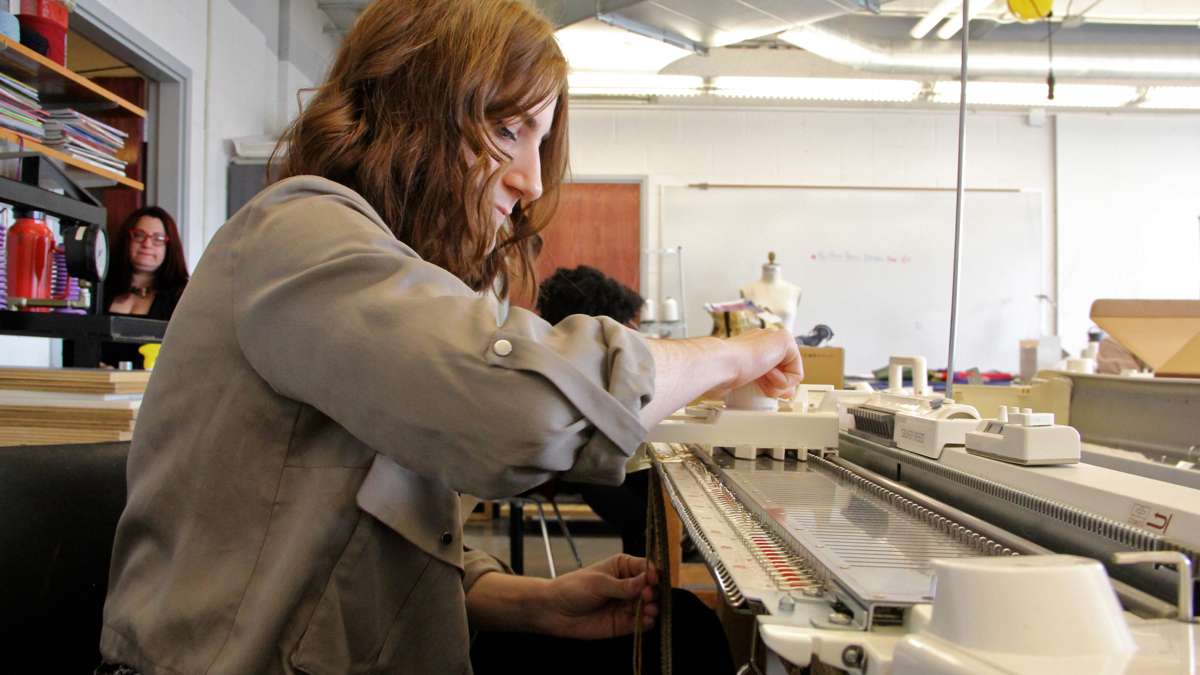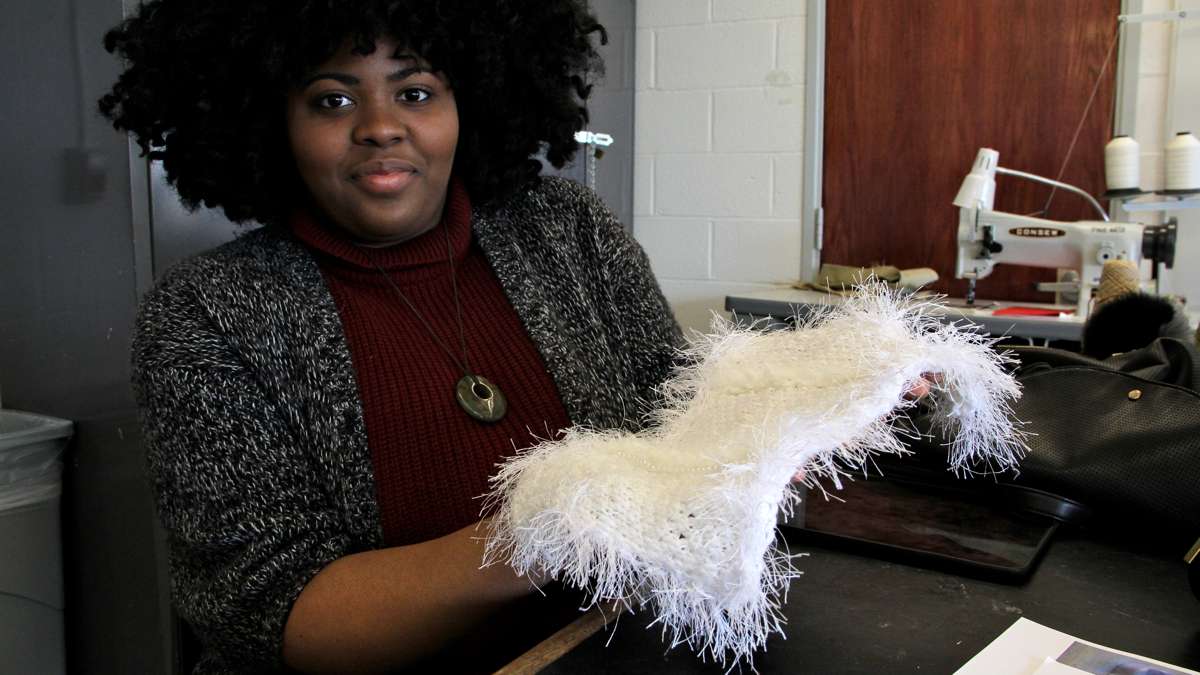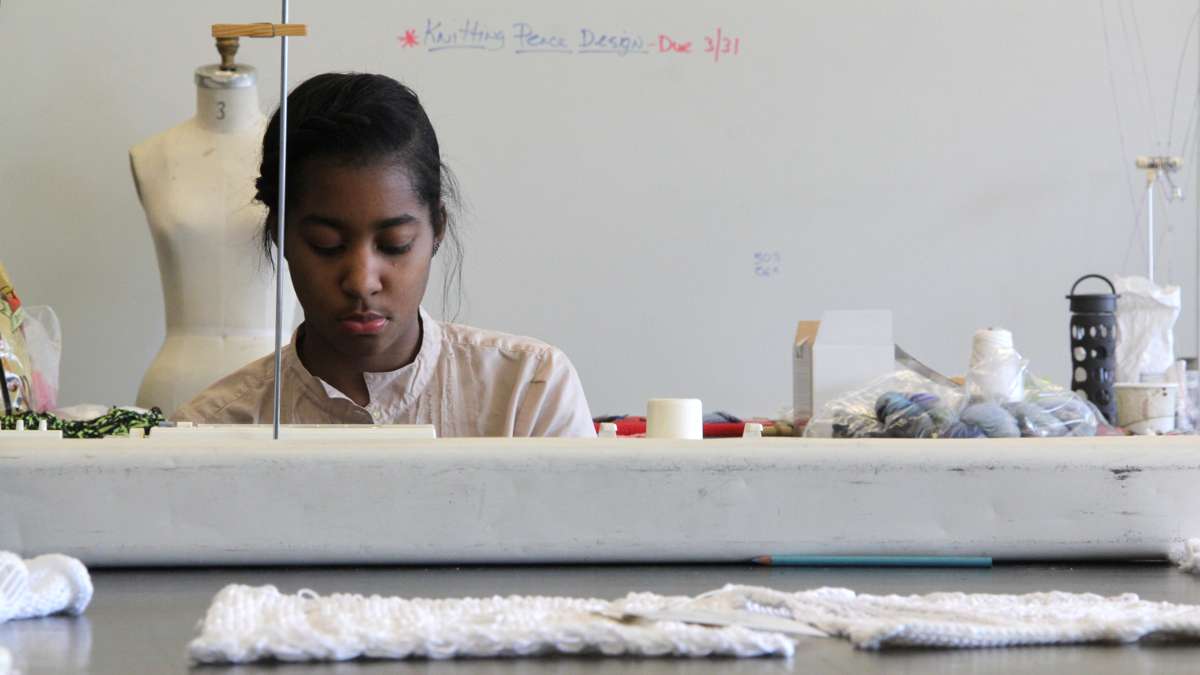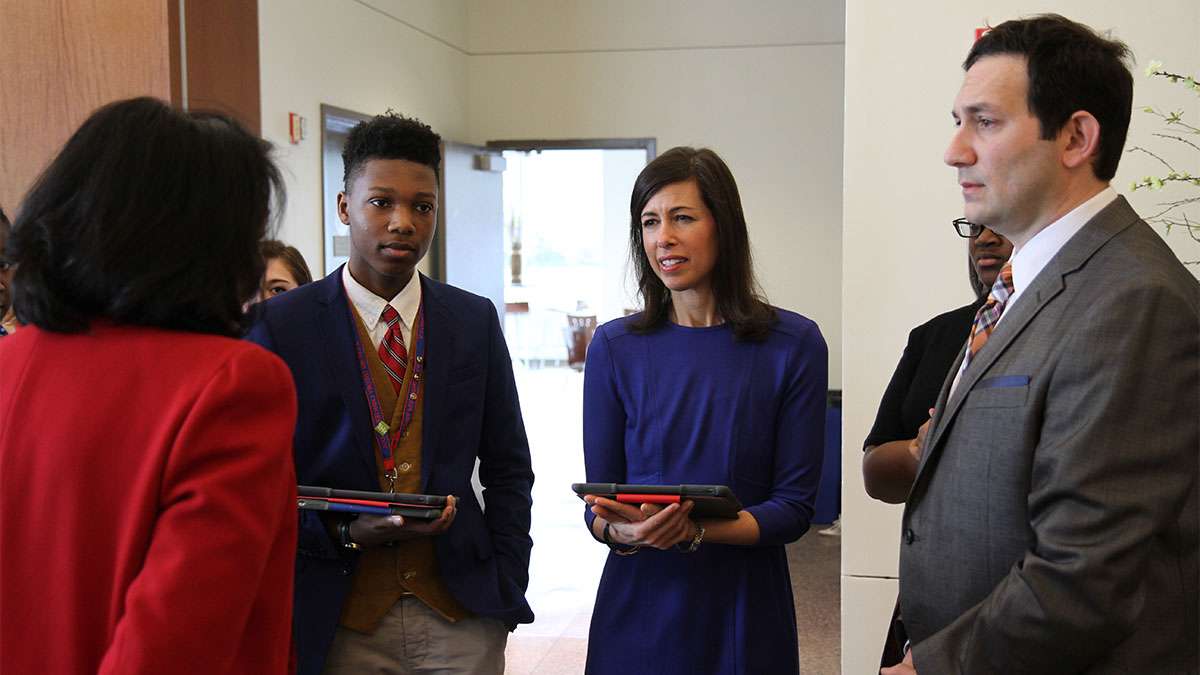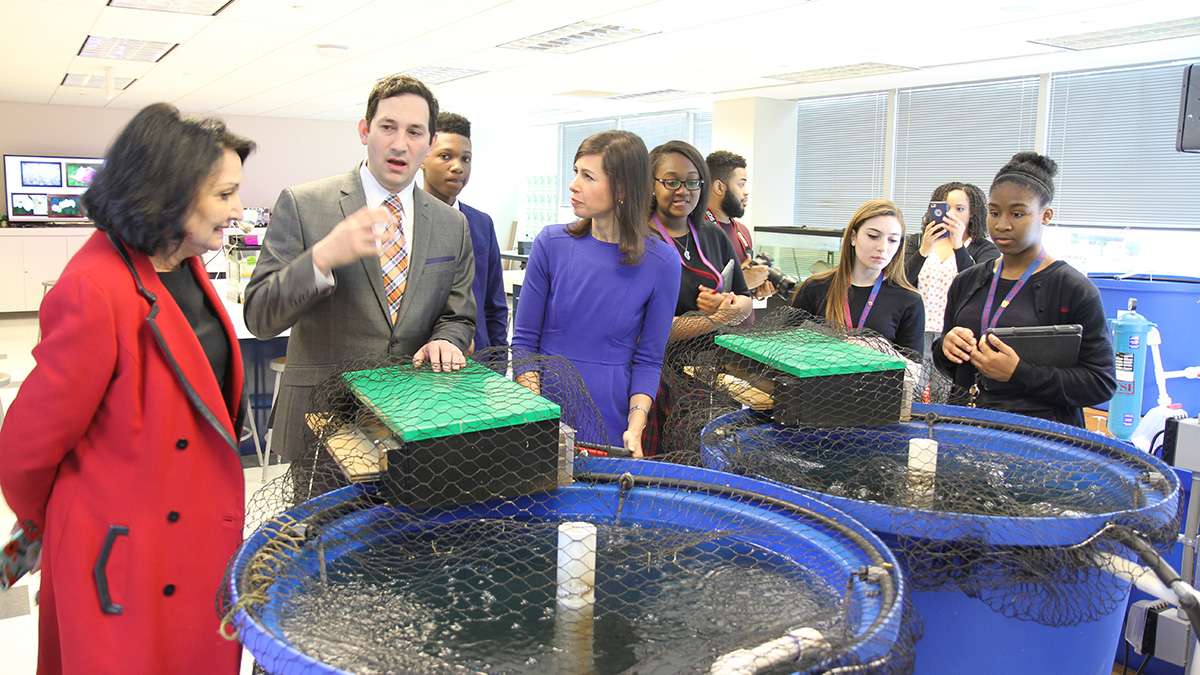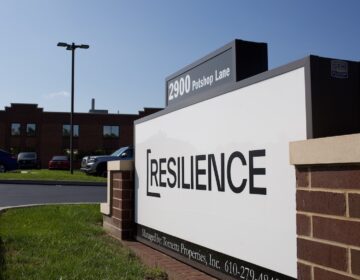To narrow ‘homework gap,’ FCC approves subsidy to help needy students access internet
ListenThe Federal Communications Commission passed a landmark resolution last week making low-income families eligible for a new federal subsidy for high-speed internet access.
One of the commissioners visited a Philadelphia public school Monday to emphasize the need for such a measure in an era of digital learning.
According to the Pew Research Center, about seven in 10 teachers across the country assign homework that requires access to the internet, but more than 17 percent of families with school-aged children lack access to broadband in their homes.
“That problem, where those numbers overlap, is what I call the ‘homework gap,'” said FCC Commissioner Jessica Rosenworcel before an audience of students and educators at String Theory Charter’s dazzling Center City campus.
Rosenworcel has been a leading advocate in pushing the federal government to help ease this digital divide — which especially affects low-income, black and Hispanic families.
“If you want a fair shot at a 21st century success, you’re going to need to know how to use digital resources, you’re going to need to be able to use them at home and at school,” she said.
For families in need, $9.25 makes big difference
At String Theory, every student receives an iPad that they can use 24-7, but some are among the 17 percent who lack internet access at home.
“It really hurt my grades, and my learning actually,” said junior Amrose Dorvil, who has gone without a home broadband connection for most of her life.
It wasn’t until midway through her freshman year that she learned about Comcast’s Internet Essentials program — in which low-income families with children can get connected for about $10 a month if they meet other eligibility requirements.
“It really helped me. Like, if you look at my grades, from … last year to now, they’re really improving,” said Dorvil, who lives with her family in the Frankford section of Northeast Philadelphia. “I can research stuff for my papers, and the studying process just got so much easier and more effective.”
But Dorvil’s family still struggles to afford the discounted service, especially when bills spike for necessities such as heat or water.
“When it comes too high, then they have to cut off the Wi-Fi for that month, and then I’m screwed,” she said.
That happened this winter. So in December and January, Dorvil stayed at school every day until 6 p.m. to finish her homework.
“And then teachers would walk by and say, ‘Why are you still here?’ I was like, ‘I need the internet,'” she said.
Smartphones can’t stand in for computers
Last week, Rosenworcel and the two other Democrats on the five-member FCC panel approved the resolution to make internet for families like the Dorvils practically free by offering a $9.25 monthly federal subsidy.
Republicans on the panel balked at the fact that the $2.25 billion budget doesn’t have a hard cap, and they worried about the potential for abuse.
Overall, the number of Americans with home broadband access has decreased in recent years, as smartphones have grown in prevalence.
Rosenworcel warned against putting too much stock in that trend as it regards closing the digital divide.
“No parent or teacher or student would think that it’s optimal to sit around and do research, type a paper, apply for a job, apply for a scholarship, apply for college on a handheld device,” she said.
WHYY is your source for fact-based, in-depth journalism and information. As a nonprofit organization, we rely on financial support from readers like you. Please give today.



